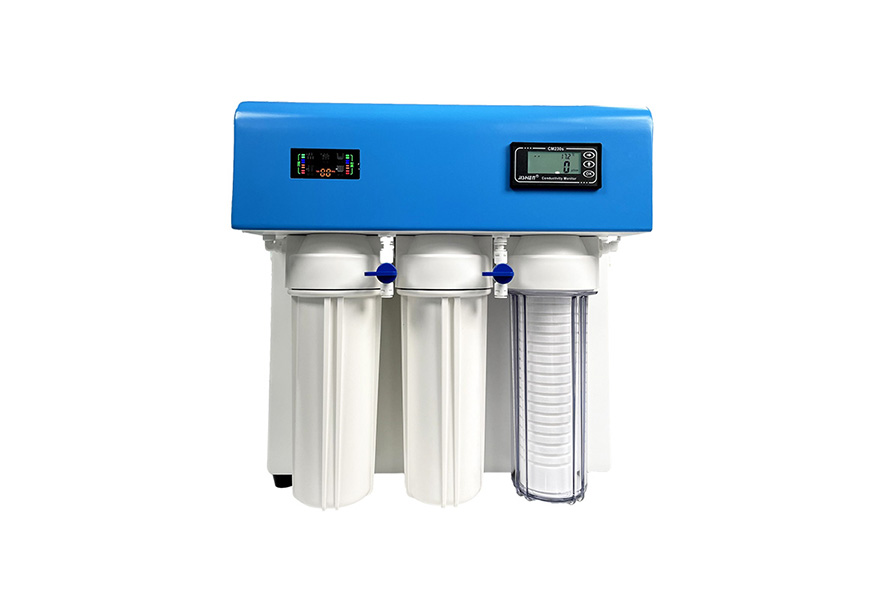The reason why the pure water machine is named "pure water machine" is mainly because its core function is to remove impurities, ions, impurities, heavy metals, organic matter and other pollutants from water sources such as tap water, thereby generating pure water. Pure water refers to water in which the majority of dissolved substances and impurities have been removed, typically water with very low conductivity and almost no dissolved salts or other substances.
The working principle of Shanghai Yetuo Basic Ultra Pure Water Machine:
Pure water machines can remove harmful substances from water through various filtration and treatment methods, making the water more pure. The main processing steps include:
Pre filtering:
This step usually uses activated carbon filter and PP cotton filter, mainly used to remove large particle impurities, suspended solids, sediment, chlorine gas, etc. from water.
Activated carbon filter can also adsorb odors and some organic pollutants in water.
Reverse osmosis (RO) membrane:
Reverse osmosis is the core technology of pure water machines. The pore size of RO membrane is extremely small, which can remove dissolved substances such as ions, salts, fine Jun, viruses, heavy metals, etc. from water. Only water molecules can pass through the RO membrane, while other substances are intercepted.
Through reverse osmosis filtration, soluble salts (such as sodium, calcium, magnesium, etc.) and other harmful substances (such as fluoride, heavy metals, etc.) in water are removed, and the resulting water contains almost no ions.
Post filtering:
Post filter cartridges are usually activated carbon or mineralized filters, used to further alter the taste of water, adsorb trace amounts of harmful substances, and prevent odors or impurities that may be introduced during reverse osmosis processes.
Some levels of pure water machines also add ultraviolet sterilization lamps to further ensure the removal of microorganisms from the water.
Electrodeionization (EDI) technology (optional):
Some high-end pure water machines use EDI (Electrodeionization) technology to further remove ions from water through the action of an electric field, generating ultrapure water. This technology can remove almost all ions from water, making it particularly suitable for laboratory applications that require high water quality.
The main function of a pure water machine is:
Deionization: Removing inorganic salts and ions (such as calcium, magnesium, sodium, chlorine, etc.) from water, reducing its conductivity and making it very pure.
Removing impurities: including suspended solids, microorganisms, organic matter, and other pollutants in water, to prevent their impact on usage scenarios such as laboratories and industrial production.
High purity of produced water: After RO reverse osmosis and post filter treatment, the water has almost no dissolved substances, making it a very important "purified water" in fields such as laboratories, pharmaceuticals, and electronic manufacturing.
Classification of pure water machines:
RO Pure Water Machine: A common type of pure water machine that uses reverse osmosis technology to remove salt and harmful substances from water, providing higher purity water.
Ultra pure water machine: Based on the RO pure water machine, EDI technology or other precision filtration methods are further used to remove trace ions from water, suitable for high water quality requirements such as laboratories.
Conclusion:
The name "pure water machine" reflects the core goal of the equipment, which is to remove harmful substances such as impurities, ions, and microorganisms from water through various filtration technologies, and generate high-purity water. Through this treatment, the water produced by Shanghai Yetuo Basic Ultra Pure Water Machine has extremely low conductivity and no harmful substances, making it suitable for various places that require pure water, such as laboratories, industrial production, pharmaceutical fields, etc.


 Alibaba Store
Alibaba Store Tmall Store
Tmall Store Jingdong Sstore
Jingdong Sstore







